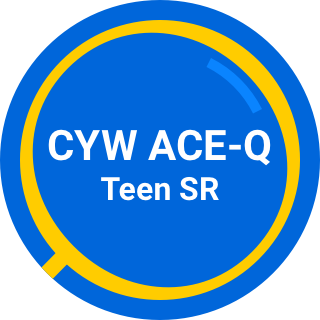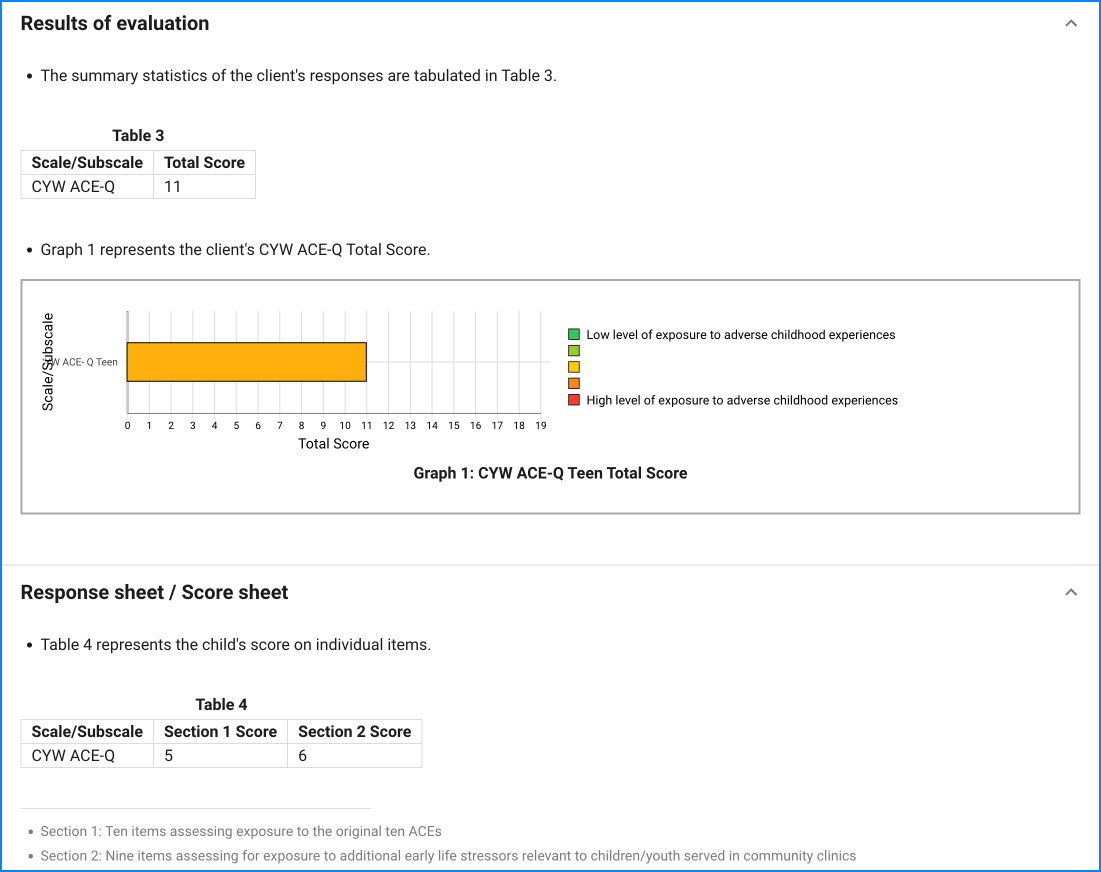The instrument is comprised of two sections: Section 1 of the CYW ACE-Q (i.e. items #1-10) consists of the traditional ten ACEs for which we have population-level data for disease risk in adults. Section 2 includes nine (CYW ACE-Q Teen and CYW ACE-Q Teen SR) items assessing for exposure to additional early life stressors identified by experts and community stakeholders. These items are hypothesized to also lead to disruption of the neuro-endocrine-immune axis, but are not yet correlated with population level data about risk of disease. They include involvement in the Foster Care system, bullying, loss of parent or guardian due to death, deportation or migration, medical trauma, exposure to community violence, and discrimination.
The CYW Adverse Childhood Experiences Questionnaire for Adolescents : Self Report (CYW ACE-Q Teen SR) is a clinical screening tool that calculates cumulative exposure to Adverse Childhood Experiences (ACEs). It is a 17 item instrument completed by youth age 13 to 19. Respondents are asked to report how many experience types (or categories) apply to their child, not which experiences apply (i.e. it is de-identified). The CYW ACE-Q Teen SR is intended for use in pediatric and family practice settings to identify patients at increased risk for chronic health problems, learning difficulties, mental and behavioral health problems and developmental issues due to changes in brain architecture and developing organ systems brought on by exposure to extreme and prolonged stress.



